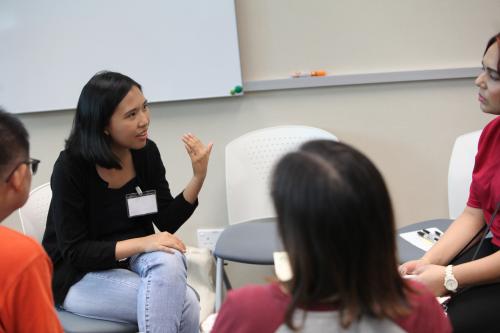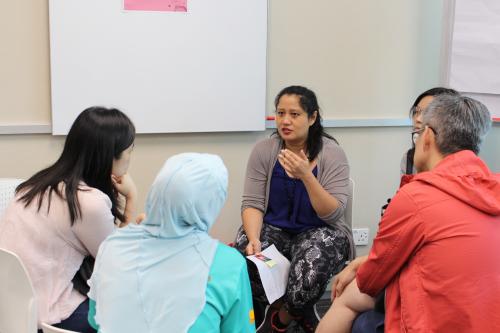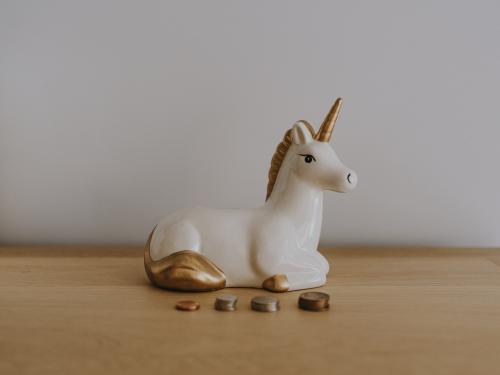This is the second article of a four-part series. Read Part 1, Part 3 and Part 4.
In "Hidden Heroes: Tales from Caregivers Part 1", we met Christine and Nadia, who shared the ups and downs in their respective caregiving journeys. They are members of Caregivers Alliance Limited (CAL), a non-profit that provides support and training to caregivers of persons with mental health issues (PMHIs) and dementia. In this second instalment, JAYA MYLER continues the conversation.
The emotional and psychological toll that caregiving places on caregivers cannot be overstated.
In Christine's case, trying to communicate with her brother is a "draining" process because she's unable to fully relate to his struggles. "Most of the time, I don't know what to say when he gets upset," she describes. "I recognise that he has a mental health condition and that to him, what he's experiencing is a very real thing. However, not knowing exactly where he's coming from, I can't find right words to reassure him."

Christine shares her experiences with other caregivers and members of the public. Image courtesy of CAL.
Nadia, on the other hand, has struggled with immense guilt for many years: “I used to feel guilty about being 'the normal one' between my sister and I. These feelings intensified whenever my sister asked my mother questions such as, 'Why does she get to be normal and not me?' But I eventually realised that none of this is my fault," she says. After this mindset shift, Nadia no longer carries the guilt of "being normal", and even has advice for caregivers still grappling with this issue. "You shouldn’t have to feel guilty for wanting to socialise with your friends, for having ambitions, for wanting a career, for having a job that allows you to travel and go to parties. In the past, I would sit at nice restaurants and feel guilty, but in hindsight I shouldn't have been. I wasn’t doing anything wrong.”

Nadia tells her story to encourage other caregivers and members of the public. Image courtesy of CAL.
The caregiver's world is also vastly different from the world as most others view and experience it.
While many people look forward to the holiday season because they can take some time off or go on a relaxing vacation, for Christine and Nadia, the holidays are one of the more challenging times.
“My brother has a fear of going out. In addition to bipolar disorder, he has social anxiety, so for many years, we'd had to cancel overseas family trips at the last minute because he would not want to go,” Christina says. “But if he did come along, he would be very anxious throughout, and it might trigger a relapse when we got back.”
![]()
Image via rawpixel
In Nadia's case, holiday get-togethers with the extended family are stressful for her and her parents. The family celebrates both Eid and Christmas, and at these gatherings, some relatives are quick to pass insensitive comments.
“They often give unsolicited 'advice' like, 'You just need to be a bit more disciplined with your sister' or ‘Pray, you’re not praying enough’." Even if well-intentioned, Nadia explains that such remarks do not sit well with her because they imply that her mother did something wrong in the past and is being punished with her sister.
There's also the issue of cost. In instances where the family member being cared for requires a high level of attention, the primary caregiver is usually unable to work. As a result, this role can quickly become an expensive one.
A 2019 study by the Association of Women for Action and Research (AWARE) found that caregivers of their ageing family members, including those with dementia, lose an average of 63 per cent of their income, in addition to CPF.
This is a common situation, according to Caregivers Alliance. Many caregivers in their network are not employed due to the state of their loved ones. Some even require financial assistance to pay for their family member's medical expenses and to keep up with monthly expenditures.

Image via Unsplash
Yet despite the internal struggles caregivers face (emotionally or financially), their bigger obstacle comes externally.
The significant societal stigma surrounding mental illness is what discourages most caregivers from speaking openly about their experiences and seeking the help and support they crave.

Image via Unsplash
Eliminating this stigma is therefore an important aim for Caregivers Alliance. “We hope to encourage a growing acceptance and embracing of PMHIs (persons with mental health issues) as equal and valuable members of society,” says Veena, a counsellor at CAL. “Through education and advocacy, we urge everyone to be more empathetic and understanding towards PMHIs as fellow human beings.”
While Christine and Nadia have observed increased discourse around mental health (for instance, the UK has the Heads Together campaign, and Singapore has Beyond the Label), both ladies concur that more needs to be done in this space to ensure the topic shares an equal footing with other health issues.
However, Christine wonders, is this shift mainly taking place among the younger generation? She points out that while many millennial-fronted YouTube channels and Instagram accounts champion mental health awareness and advocate against the associated stigma, the attitudes of the older generations are less visible. This troubles her, because she believes the key decision-makers in the system are likely those within that latter age demographic.

Image courtesy of CAL.
The National Council of Social Service’s (NCSS) study on Public Attitudes towards Persons with Mental Health Conditions found that the Singaporeans surveyed have many misconceptions about persons with mental health conditions—and that fear, a lack of understanding and stereotypes contribute to deep-seated stigma.
“People with mental health issues are vulnerable and need a lot of encouragement and support rather than discrimination and stigma,” Christine adds. “The change I hope to see is more of a systemic one, reflected in policies." She shares that whenever her older brother goes out in search of work, he feels very discouraged whenever he's asked to declare his condition. "He’s worried about the reactions of these prospective employers. In many cases, doors have closed. On the other hand, if he applies for a job at a millennials-run company, would they be more OK with it? We just aren't privy to these conversations."
![]()
Image via rawpixel
Banner image via Unsplash
 |
Jaya Myler is a non-profit manager and marketing and communications specialist. She has worked with international NGOs and managed corporate and consumer brands, and has extensive experience with non-profits focused on education, the environment, providing access to clean water and sanitation. Jaya is passionate about the power of collaboration to drive innovation and achieve impact. She has also volunteered extensively with charities in the areas of housing, education and multi-sector partnerships. Jaya, an Australian, has been living and working in Asia for the past eight years, and has called Singapore home for nearly six. Connect with her on LinkedIn. |








Comments